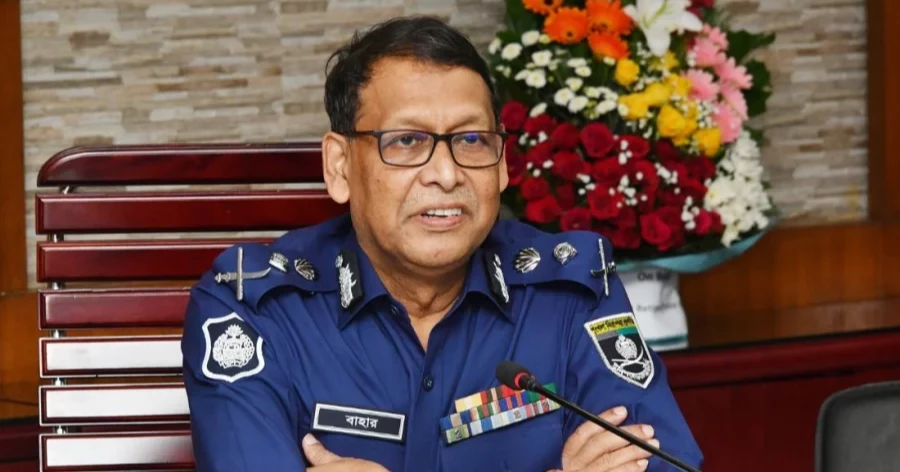Bangladesh Police require independence or autonomy from the political leadership to provide better service to the people, Inspector General Baharul Alam said on Saturday.
He also called for amending colonial-era Police Act 1866 to make the police force more effective.
“If we want to make pro-people police, you will have to give me a sort of autonomy or independence,” the inspector general of police (IGP) told a roundtable titled “Need for Police Reform: From Civil Society Perspective,” organized by English daily The Daily Star at its Dhaka office.
“We need reforms. We want to be good,” he said, adding that police have been asking for reforms since 2006.
The IGP said that police should be separated from the executive authority of the ministry and should be placed under an independent body.
“Whom I will arrest in a case, whom I will send to jail, and against whom I will file a charge sheet — this should be up to me. No political leadership from the ministry should interfere with me in this matter,” he said.
Speaking on the occasion, Mohammad Iqbal, a member of Police Reform Commission established by the inerim government, said that people in general view an independent police body as an organization that will remain free from the influence of the executive body of the state.
“We cannot make any institution fully independent without the ministerial accountability. There were debates among us and we agreed on some respects while disagreeing on others. We decided to let the higher authority to decide,” he said.
Referring to the failure of the previous police reform commissions, former IGP Nurul Huda said that to implement the recommendations of the present commission, political will is a must.
“The damage the police suffered during the last one and half years, I doubt if the force will be able to recover in next fifty years,” he said to recover,” said Nurul Huda.
The Police Reform Commission is failing to understand that the changing the colonial-era police act is the most important aspect.
“This police commission is hopeless and ineffective and does not know the core issues of the problem. It also does not wish to know,” he said.
Transparency International Bangladesh Executive Detector Dr Iftekharuzzaman, also a member of the National Consensus Commission, said that the consensus commission has so far discussed reports of six different commissions formed by the interim government.
But, he said the consensus commission has not yet held any discussion on the report from the police reform commission.
Iftekharuzzaman mentioned that 13 reform commissions had so far been constituted, but recommendations from none of them were ever implemented.
“The political and bureaucratic and the police themselves, the triangular forces of resistance, did not let it happen. Like political force, they do not want to be held accountable,” he said.
BNP’s Standing Committee Member Salahuddin Ahmed said that if they come to power, they will not use police as a tool.
“We will not use police for political purpose in future,” he said.


